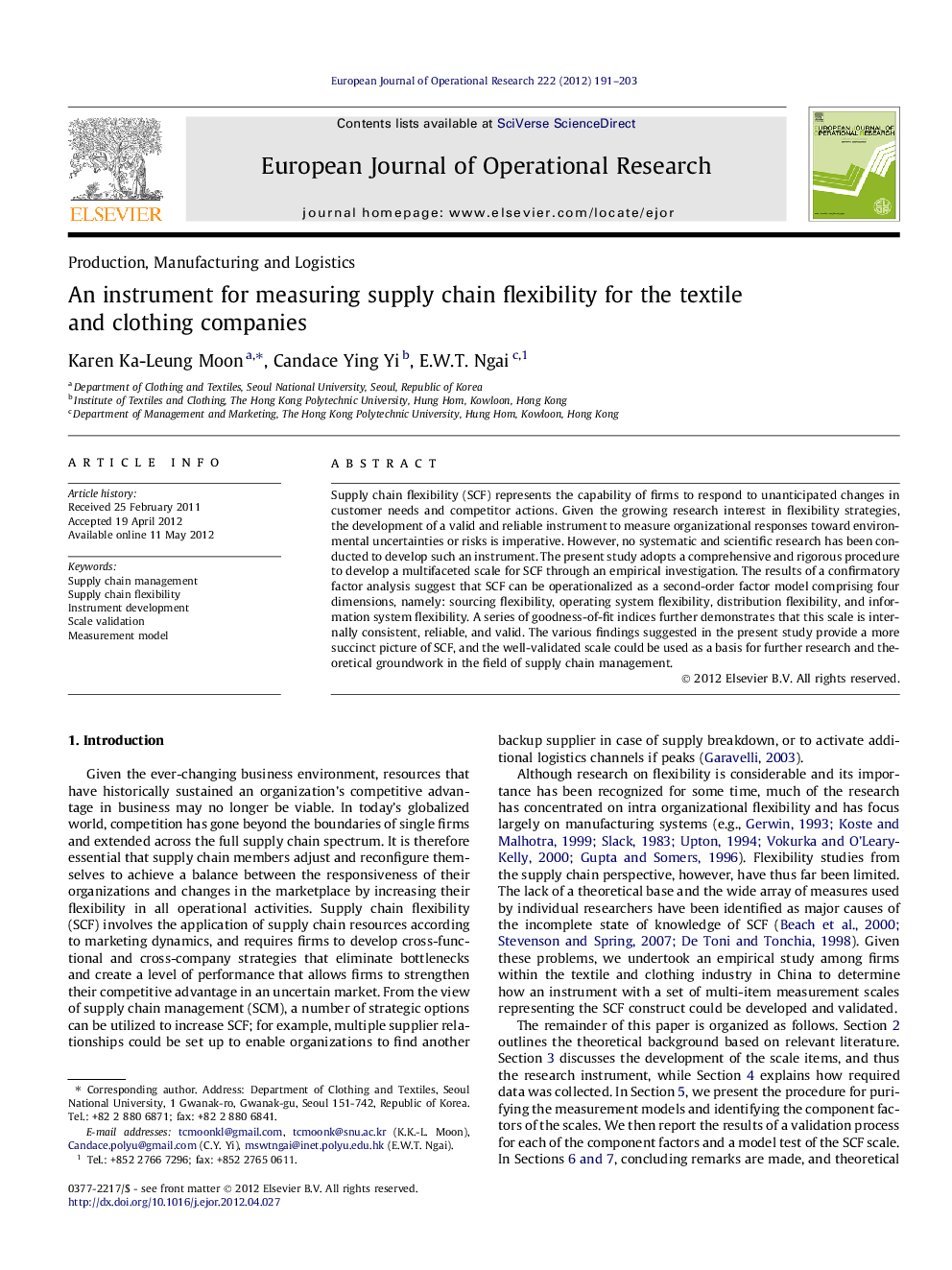| Article ID | Journal | Published Year | Pages | File Type |
|---|---|---|---|---|
| 480307 | European Journal of Operational Research | 2012 | 13 Pages |
Supply chain flexibility (SCF) represents the capability of firms to respond to unanticipated changes in customer needs and competitor actions. Given the growing research interest in flexibility strategies, the development of a valid and reliable instrument to measure organizational responses toward environmental uncertainties or risks is imperative. However, no systematic and scientific research has been conducted to develop such an instrument. The present study adopts a comprehensive and rigorous procedure to develop a multifaceted scale for SCF through an empirical investigation. The results of a confirmatory factor analysis suggest that SCF can be operationalized as a second-order factor model comprising four dimensions, namely: sourcing flexibility, operating system flexibility, distribution flexibility, and information system flexibility. A series of goodness-of-fit indices further demonstrates that this scale is internally consistent, reliable, and valid. The various findings suggested in the present study provide a more succinct picture of SCF, and the well-validated scale could be used as a basis for further research and theoretical groundwork in the field of supply chain management.
► A rigorous procedure was adopted for the validation of the scale of supply chain flexibility (SCF). ► The SCF construct was operationalized as four-factor, second-order measurement model. ► The goodness-of-fit indices show that the SCF scale is internally consistent, reliable and valid. ► This scale provides a succinct picture of SCF and contributes to further research in SCM.
